Meatballs, plenty of shallots and a subtle taste of pomegranate. What’s not to like about this Turkish inspired meatball pomegranate stew? It’s got all the flavours of Southeastern Turkish cooking that just makes me want more with every bite.
I love making traditional and authentic food. There’s almost always good reason why dishes have survived through decades or even centuries, passed on from one generation to the next, deeply engraining themselves into family memories.
But I never let myself be bound by that in the kitchen. While I try to stay as true to the flavours as I’ve learned to enjoy them in Turkey or elsewhere when it comes to traditional dishes, I sometimes merely take inspiration from the flavours, produce and dishes around me to make something different altogether.
This site is a reflection of both of those approaches. A generous mixture of tradition, modern interpretations and new discoveries.
A not so authentic stew
This meatball pomegranate stew with plenty of shallots came to life after I had been reading about and researching soğan aşı, a Turkish stew of shallots and cubed meat in a sauce usually flavoured by tangy pomegranate molasses.
Now, any Turk, especially if they’re from the Southeastern parts of the country, may immediately take offence. “This has nothing to do with soğan aşı!,” they may exclaim.
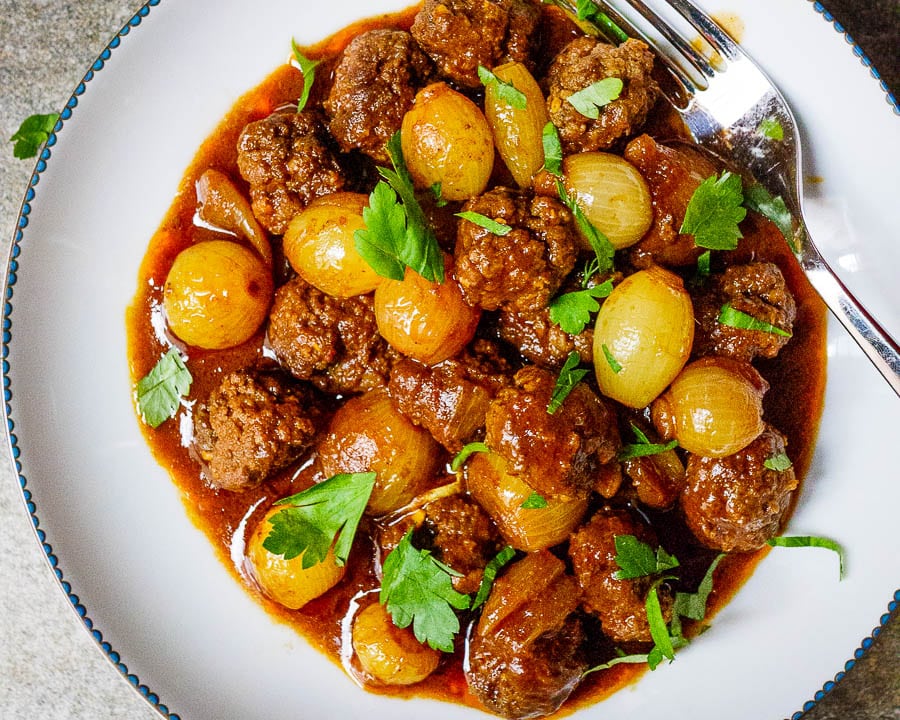
And they would be right. So I’m not calling this a soğan aşı. Yet it is very much inspired by that dish, especially the sauce. But my meat to onion ratio is way off from what is essentially an onion stew with a little meat, not the other way around. And, of course, I’m using meatballs in place of cubed meat.
Not the same at all.
Yet, it’s too delicious not to share.
How to make this meatball pomegranate stew
The key to the delicious flavours here is the classic combination of sweet and sour. And in keeping with the region’s cooking, the emphasis is more on the sour and less on the sweet. This is courtesy of one of Southeastern Turkish cuisine’s most crucial of ingredients. Pomegranate molasses.
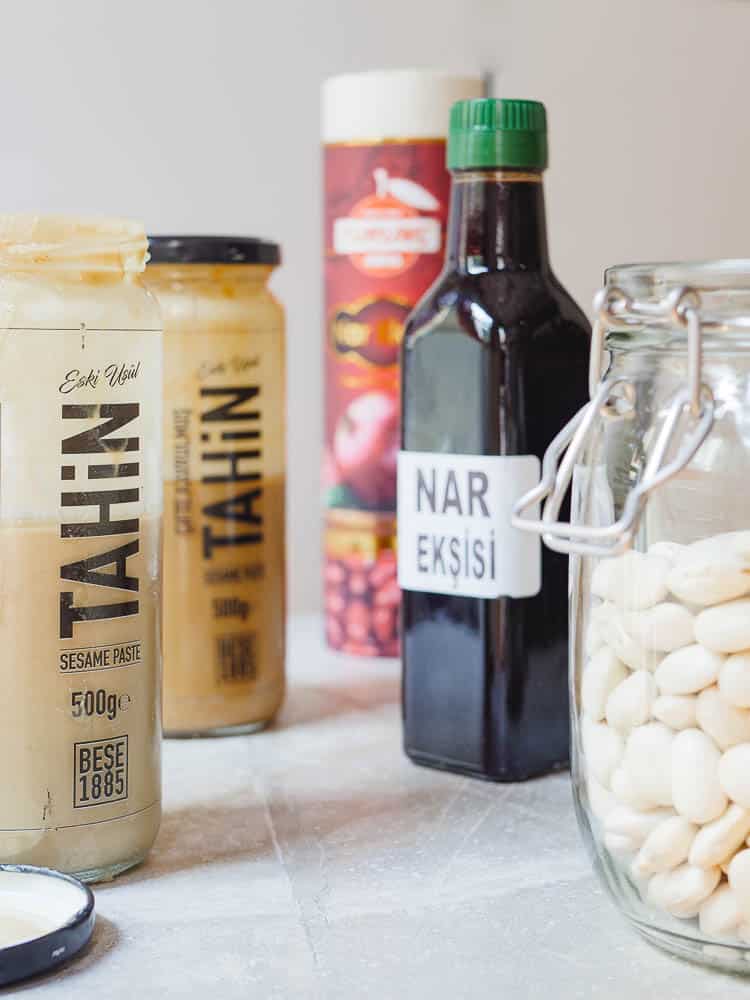
Pomegranate molasses, known in Turkish as nar ekşisi (lit. “pomegranate sour” and often translated as such by Turks), is simply the fresh juice of sour pomegranates that is cooked down to a thick, syrupy consistency. It’s usually made with with the first harvest of pomegranates in autumn.
Its flavour is significantly more sour than it’s sweet. It’s great used as you would balsamico. In fact, one of my favourites uses of it is for a three ingredient salad: bitter green leaves topped with pomegranate molasses and extra virgin olive oil. Delicious!
Another way of using pomegranate molasses is in a Syrian baba ganoush, which is tangy rather than creamy like moutabal, or as a dressing in a hearty bulgur salad.
Needless to say, it’s also great in stews where you want a tangy kick. Make sure not to use too much of it, as it can be overpowering.
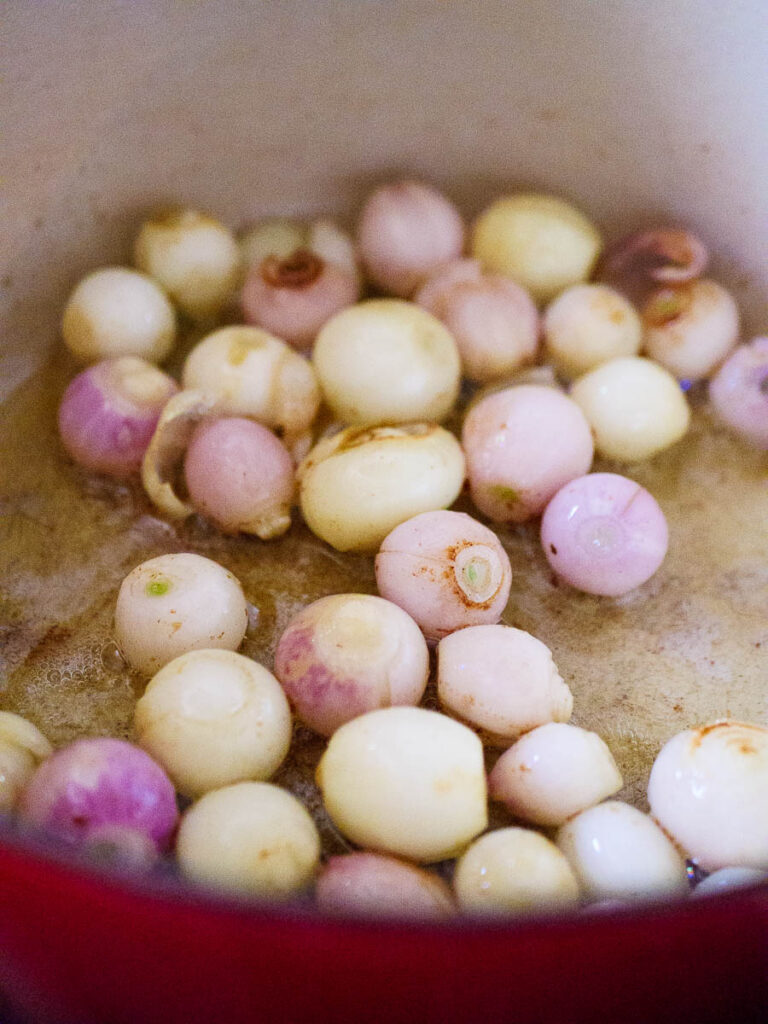
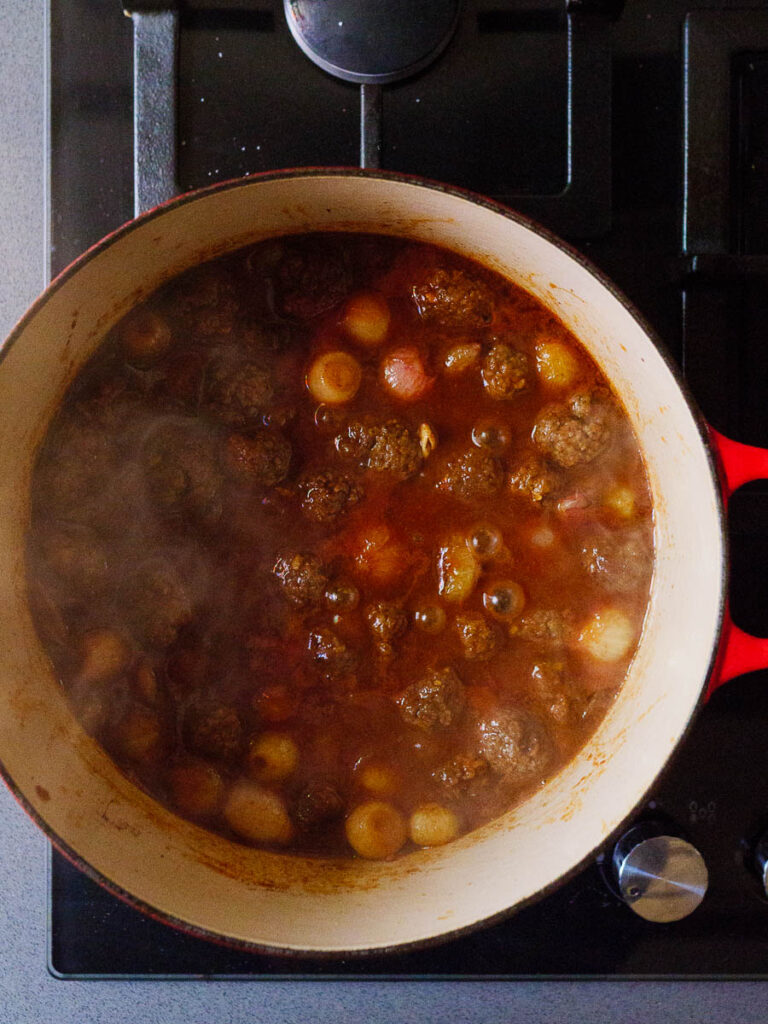
It’s also a delicious match with allspice, a much used spice in this part of the world. Warming and slightly sweet, it’s a common flavouring for meatballs in Lebanon, Syria and other parts of the Middle East (though not in Turkey, where meatballs are usually all about the cumin).
In keeping with the regional inspiration, I like to make the meatballs for this dish fairly small, roughly the size of the shallots. Did you know, by the way, that this region has another dish with chickpeas and meatballs, where the meatballs are shaped the same size as the chickpeas? That’s a lot of work!
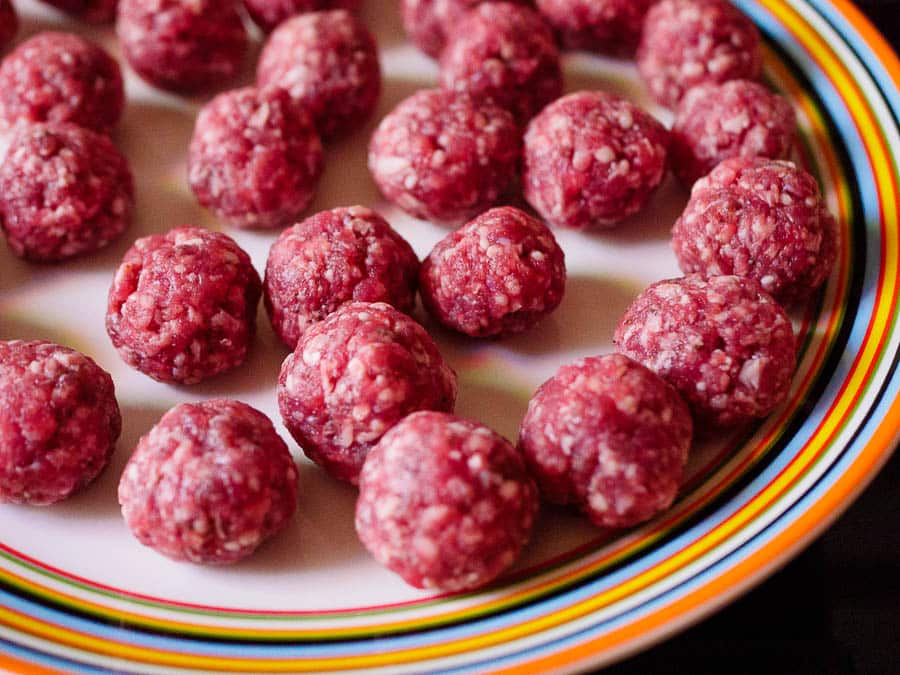
Ingredients in hand, this is one of the simplest stews you can make. Simply fry the onions and meatballs, then add a few simple ingredients for the sauce. Finally, add the onions and meatballs back in, and wait for time and heat to work its magic!
Serving suggestions
I like to serve this meatball pomegranate stew with a generous serving of Turkish style rice or with bulgur. The latter is more commonly used in the southeastern parts of Turkey than the western coast.
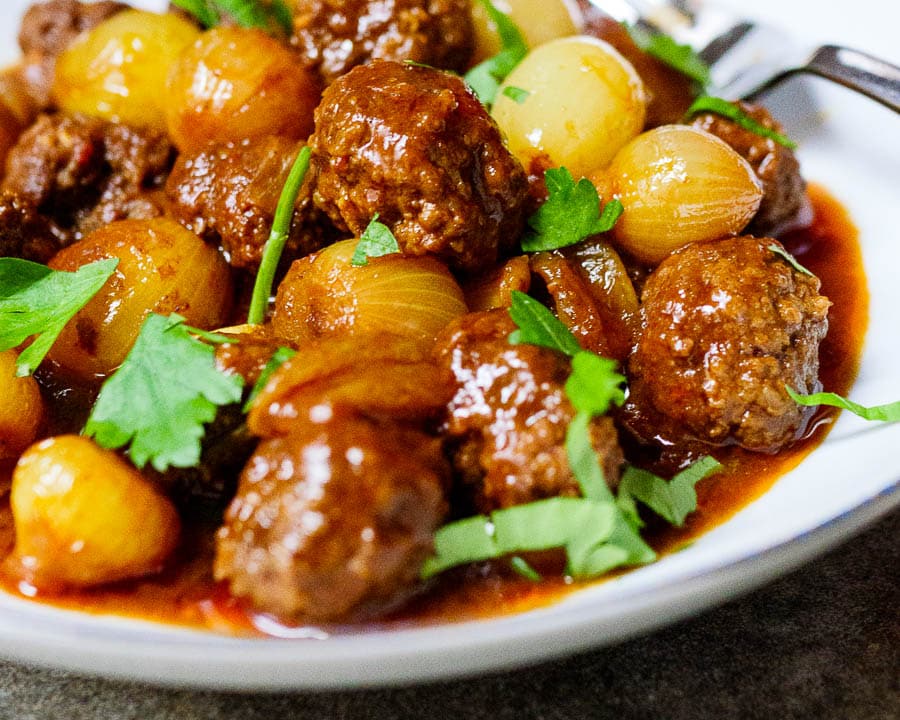
A simple side salad wouldn’t go amiss either. Given the depth of flavour of the stew, nothing too complex is required.
Why not double down on the pomegranate theme and serve a simple green salad dressed with pomegranate molasses and extra virgin olive oil, as I described above? Simply delicious.
The recipe serves 2-3.
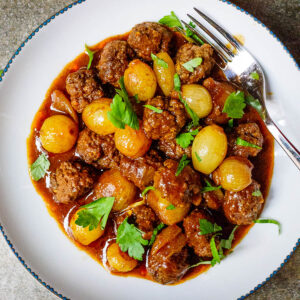
Turkish inspired meatball pomegranate stew
Ingredients
- 2-4 Tbsp butter, or olive oil
- 400 g shallots, peeled (but kept whole)
- 1 Tbsp tomato paste
- 1 Tbsp pomegranate molasses, see recipe notes below for alternative
- ¼ tsp ground cinnamon
- water
- flat-leaf parsley leaves, roughly chopped, to garnish (optional)
Meatballs
- 400 g fatty minced beef, lamb or a mix
- ½ tsp ground allspice
- ½ tsp salt
- ¼ tsp black pepper
How I make it
- In a bowl, mix all the meatball ingredients. Shape to meatballs roughly the same size as the shallots.
- Heat a thick bottomed pot over medium heat. Fry the onion in 2 Tbsp butter until just beginning to soften, stirring regulary, 5-6 minutes. Remove the onion to a plate and set aside.
- Brown the meatballs in the same pot, adding more butter if necessary. The meatballs only need to colour and don’t need to be cooked through at this stage. Remove the meatballs to a plate, but keep the fats/juices in the pot.
- Add tomato paste to the pot and fry for about a minute, stirring constantly. Add 200 ml (⅘ cup) water, pomegranate molasses and ground cinnamon. Stir well and season to taste with salt and pepper. Add back the onions and meatballs (along with any juices that have run out). Bring to the boil, then lower the heat to low and cook covered until the meatballs are cooked through and the onions completely softened, around half an hour. Add more water if the sauce is looking very dry, but don't add too much – by the end of cooking you want to be left with a thick, intensely flavoured sauce. Season again to taste with salt and pepper.
- Serve the meatballs hot, garnished with a little flat-leaf parsley, if you like.


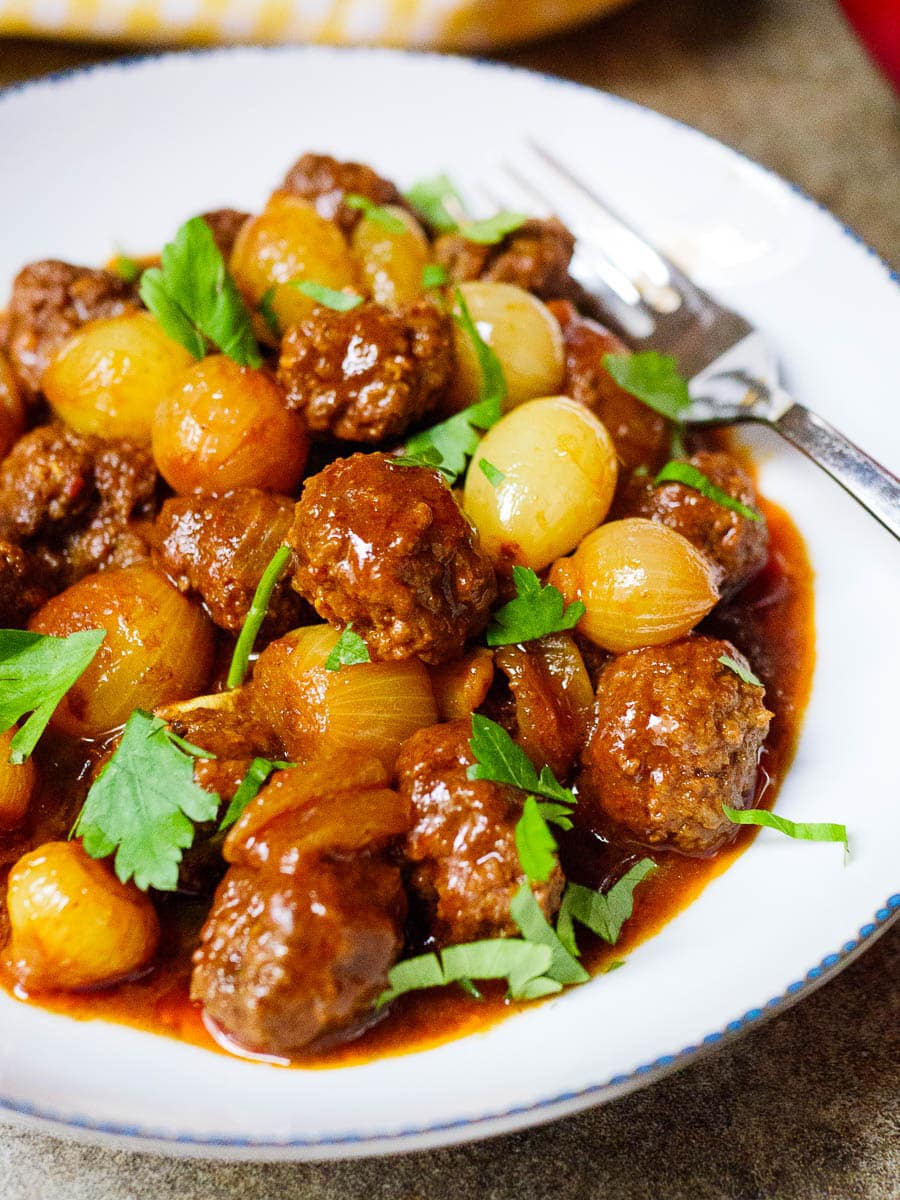

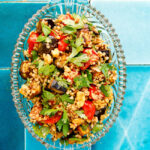


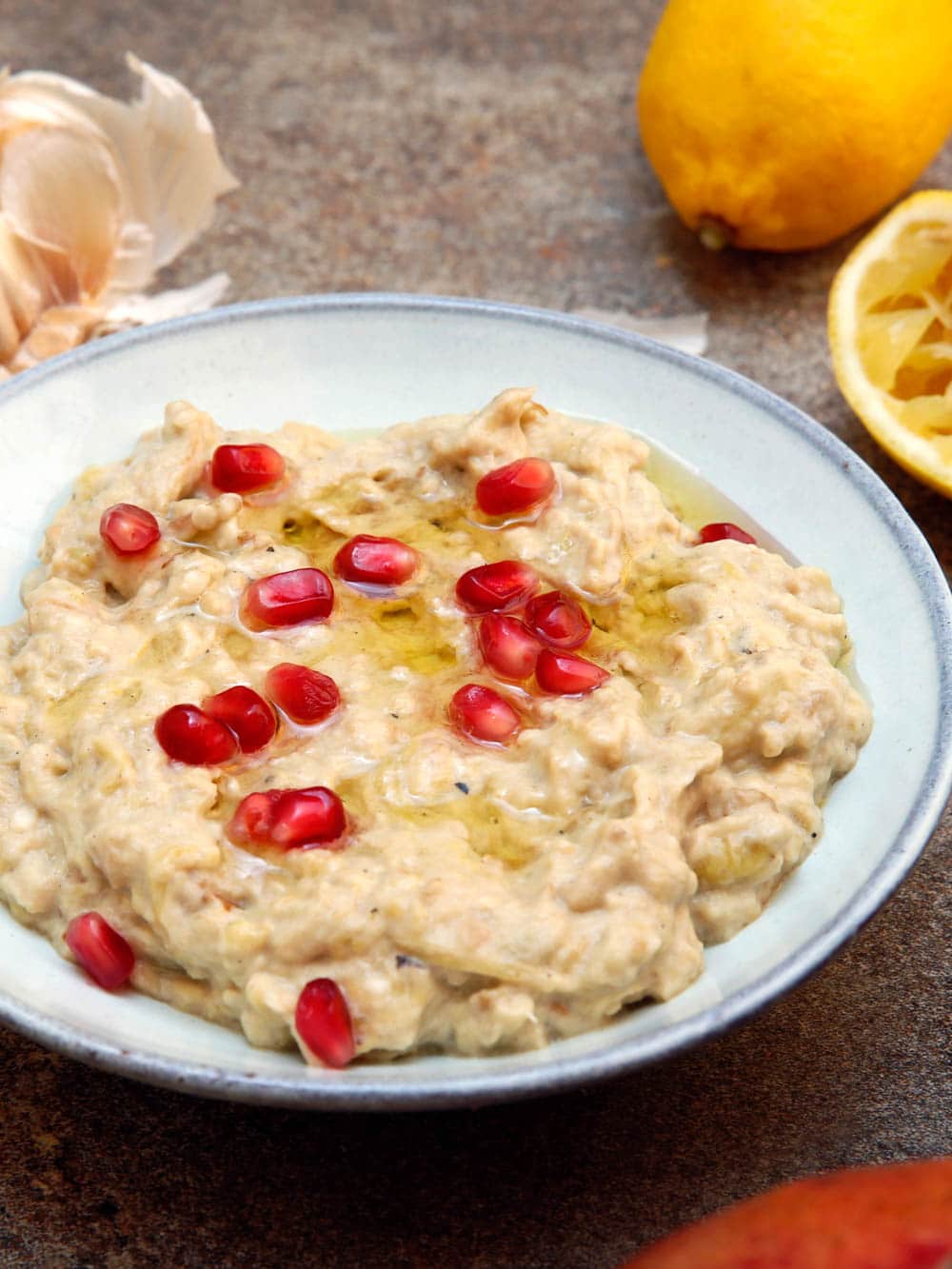

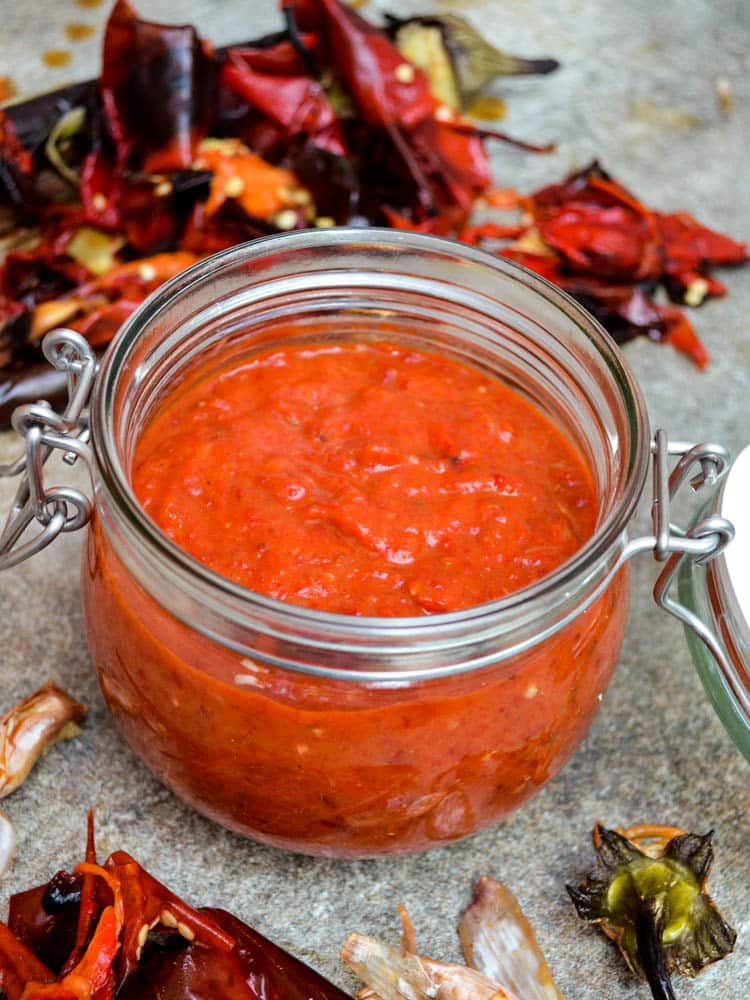

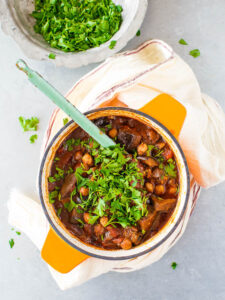





2 responses
Really looking forward to this one. When you suggest tomato paste, is it the quantity for the tomato paste we get here in Turkey, or the concentrated stuff you get in tubes in Europe.
The recipes are developed using Turkish tomato paste. Hope you enjoy!